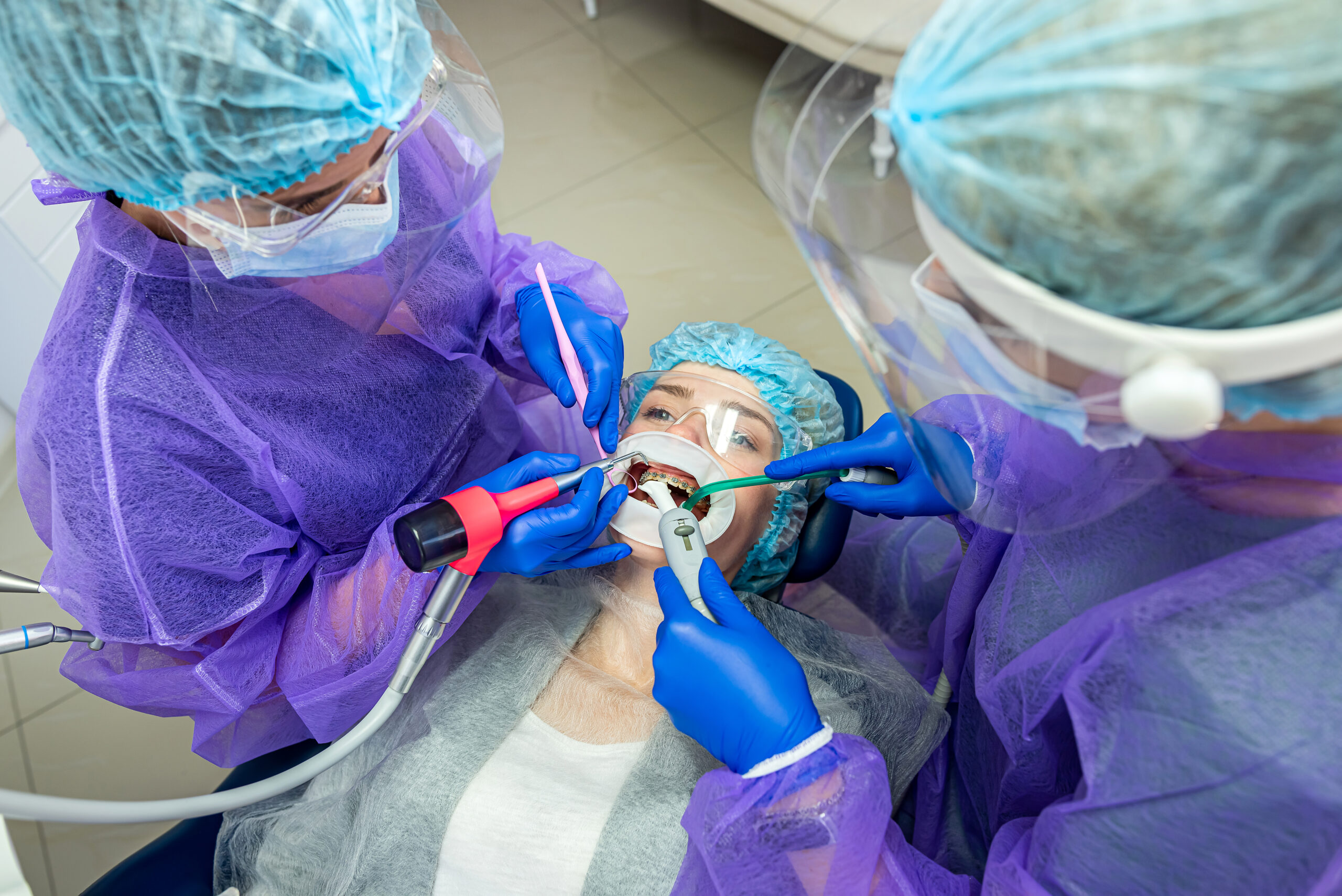
At Tooth Buddies, we are deeply committed to providing compassionate, safe, and customized dental care to individuals with special healthcare needs, including children and adults with physical, cognitive, developmental, or behavioral challenges, as well as patients with complex medical conditions.
We understand that a traditional dental setting can be overwhelming or unsuitable for some individuals. That’s why we offer sedation dentistry and hospital-based dental care tailored to meet the unique needs of these patients, ensuring a stress-free and effective treatment experience.
Nitrous Oxide: A mild sedation that helps ease anxiety and allows patients to stay awake and relaxed.
Oral Sedation: Given in pill or liquid form, it creates a drowsy, calm state while maintaining consciousness.
IV Sedation: Administered by an anesthesiologist, this deeper sedation is used for short dental procedures and is performed exclusively in a hospital setting for patient safety and monitoring.
General Anesthesia in Hospital Settings: For patients who cannot tolerate treatment in a clinic, we provide care under general anesthesia in fully equipped hospital environments, with monitoring by experienced anesthesiologists.
We have affiliations with reputed hospitals in Hyderabad where dental treatments are carried out in a safe, controlled, and sterile environment. Our team includes:
Trained anesthesiologists
Pediatric dentists
Oral surgeons
Nurses and post-operative care staff
All procedures are pre-assessed, ensuring medical clearance and coordination with the patient’s primary care or specialist doctors when needed.
Specialized experience in cleft lip/palate and craniofacial conditions
Sedation-certified dental team and pediatric anesthesiologists
Compassion-driven, family-friendly approach
Facility for pre-operative counselling and post-surgical support
10,000+ patients successfully treated across varied dental conditions
Who needs special-care dentistry?
Everyone needs to be able to have dental care. However, some people need special facilities or services to have this care provided. People with physical disabilities may have problems getting into the surgery or even into the dental chair. People with learning disabilities may become overanxious at the thought of going to the dentist or may need extra reassurance. People suffering from severe medical problems may need extra precautions or care. Those with disabilities have difficulties tolerating in-office dental treatment due to limitations relating to cooperation and/or physical problems. Therefore, they often require general anaesthesia or sedation to facilitate safe treatment.
Why is it so important to maintain oral health especially when there are other medical needs?
Oral diseases can have a direct and devastating impact on the general health and quality of life. Individuals with certain systemic health problems or conditions such as compromised immunity (e.g., malignancies, human immunodeficiency virus, history of organ transplantation) or cardiac conditions at a high risk for infective endocarditis may be especially vulnerable to the effects of oral diseases.
Many individuals with special health care needs rely on government funding to pay for medical and dental care and lack adequate access to private insurance for health care services. Lack of preventive and timely therapeutic care may increase the need for costly care and exacerbate systemic health issues.
How accessible are treatment clinics?
Practices should offer facilities for wheelchair users, including access to the practice, and ground-floor surgeries. If wheelchair access is particularly important, contact the surgery and ask if this is something they are prepared for. Some clinics have specially adapted surgeries for patients with mobility problems.
What about children's dental treatment?
Children with learning disabilities or other medical conditions may be referred to a specialist dental service by their doctor or dental team. It is important to take children to see the dentist at an early age. A low-sugar diet is also important, as they may be more likely to have tooth decay due to having problems with brushing and through taking medication. Make sure they have fizzy drinks, and sugary foods and drinks, just at mealtimes, and in moderation.
How often should I visit the dental team for care?
It is important to visit the dental team regularly. This would normally be every six months, but some people need to visit less often and others more often. The dental team will be able to tell you.
The dentist may also recommend appointments for removal of plaque and tartar from the teeth and offer advice on how to brush effectively. The dental team may also offer advice to care givers about the dental care of others. It is very important to build a relationship between the dental team, the patient and their care giver. This can help greatly with people who have severe learning difficulties. Short but regular appointments seem to work better at building trust between the patient and the dental team than long appointments at irregular intervals.
A dental home should be established by 12 months of age, especially for children with special health care needs. The dental home provides an opportunity to implement individualized preventive oral health practices, help establish routine dental care, and reduces the child’s risk of preventable dental/oral disease.
Why is medication an issue?
Many patients with disabilities have to rely on medication to keep their condition under control. It is therefore important to ask the doctor to prescribe sugar-free medicines, especially if they are syrups.
It is important to tell the dental team about any medication that the patient is taking, in case the treatment is affected or the team need to take any extra precautions.
What toothpaste should be used?
It is recommended that children up to three years old use a toothpaste that contains at least 1000ppm (parts per million) of fluoride. Over the age of three, a toothpaste that contains 1350 to 1500ppm of fluoride is recommended. If the dentist thinks that the patient is particularly at risk of tooth decay, they may prescribe a toothpaste or fluoride varnish which contains a higher level of fluoride to offer more protection.
Is dental treatment for persons with special needs complicated?
Not all oral health professionals are trained in handling persons with special needs. Because of dental anxiety, a lack of understanding of dental care, oral aversion, or fatigue from multiple medical visits and procedures, children with SHCN may exhibit resistant behaviors. These behaviors can interfere with the safe delivery of dental treatment.
With the parent’s/caregiver’s assistance, most patients with physical and intellectual disabilities can receive oral health care in the dental office. The dental team uses various methods that may include simply talking, visiting the practice to meet staff, or even hypnosis. These can all be effective in making the patient less anxious. Protective stabilization can be helpful for some patients (e.g., those with aggressive, uncontrolled, or impulsive behaviors; when traditional behavior guidance techniques are not adequate) for safe delivery of care and with consent.
Nitrous oxide inhalation sedation is the safest and simplest form of sedation and is often the one most suitable for both children and people with special needs. However, this is not appropriate for everyone - especially people with limited understanding, cerebral palsy or multiple sclerosis.
Some will also help people needing specialist care and may need sedation, or general anaesthetic.When deciding on dental treatment under general anesthesia, the plan should be carefully determined because compared to general patients, patients with disabilities are more likely to experience anesthetic complications because of their underlying medical conditions and potential drug interactions. Clinicians prefer simpler and more aggressive dental treatment procedures, such as extraction, since patients with impairment have difficulty maintaining oral hygiene, resulting in a high incidence of recurrent caries or restorative failures.

Tooth Buddies delivers quality dentistry with a personalized touch. Each patient is treated with the utmost care, compassion, empathy.
Copyright © 2026 All Rights Reserved.